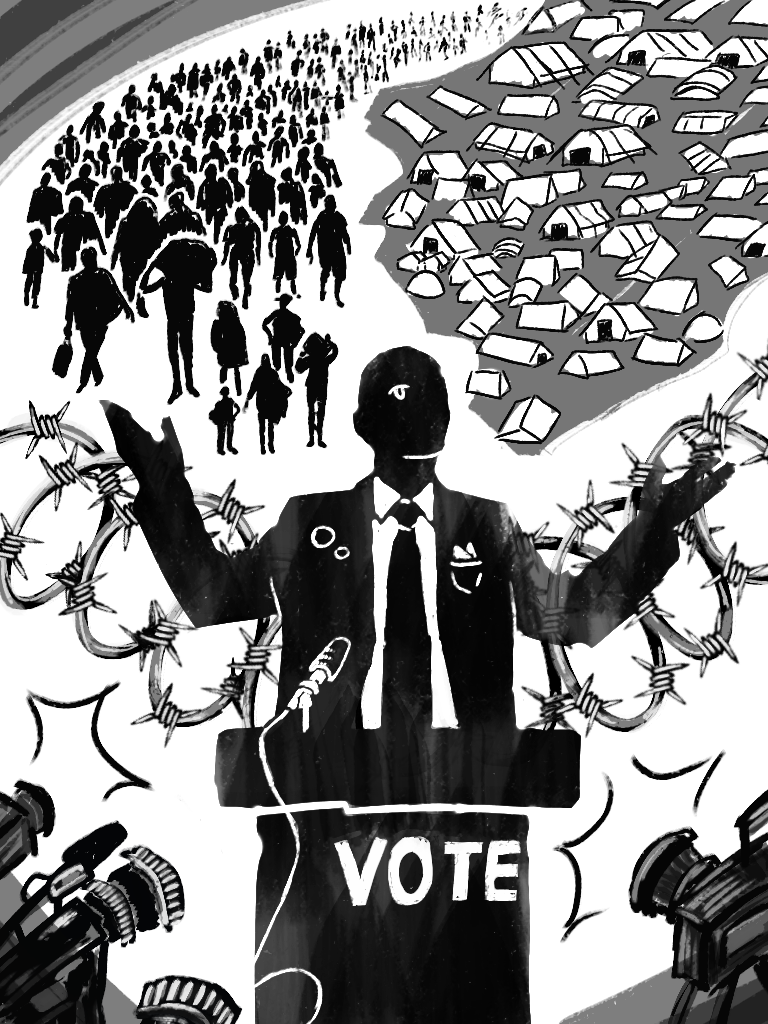The Republican Party has sold out its base in exchange for an electoral advantage in this upcoming election. By blocking the Border Act of 2024, Republicans have shown that they are not interested in passing the border legislation they claim to support. This bill, negotiated between Chris Murphy (D-CT) and James Lankford (R-OK), was essentially a conservative wishlist on border policies. Democrats abandoned a pathway for citizenship during negotiations and agreed to shut down the border if crossings were to exceed 5,000 migrants on average — a policy shift that aligns with the right rather than their own party’s platform. The quick change of course on immigration begs the question: Why would the Republican Party vote against the very policies they have been proposing?
The answer lies in the Republican Party’s political calculations and electoral strategy, particularly in Texas. Governor Greg Abbott has utilized the state’s border issue as a platform for political theatrics, including transporting migrants across state lines to signal disapproval of their crossing the border. This stunt allows the Republican Party to signify opposition without implementing actual policy changes. Texans have consistently expressed in polls that they believe “too many” legal immigrants are coming into the country, yet the GOP refuses to put their constituents over electoral strategy.
This political maneuvering aligns with a broader trend in GOP strategy. Trump’s rhetoric on immigration has consistently translated into his support in the Republican primaries. ABC News notes that political scientists have found that Trump’s rise in the 2016 Republican primaries was primarily due to his views on immigration. In Texas, this sentiment is particularly pronounced. A recent poll found that 60% of Texans support making it a crime for undocumented immigrants to be in Texas. By stoking fears and avoiding substantive border reform, Texas Republicans maintain their political leverage while maintaining an appeal to their anti-immigrant base.
As the Senate race between Ted Cruz and Colin Allred nears closer, we can expect to hear countless remarks from Cruz on how the border is in crisis. Remember, however, that he voted against the bill meant to combat that issue, stating, “We don’t need a border bill.” Cruz’s remark starkly contrasts his 2019 belief that both parties should take action on the border. This shift reveals how political stakes have changed. Bipartisan border reform may have been a political winner under a Trump presidency. However, such reform now would be a giveaway to Democrats before the upcoming election, making it a political risk for Republicans to support such legislation as the party in power would reap the rewards.
A Gallup poll conducted in March found that nearly a majority of Americans worried “a great deal” about immigration. For the Republican Party, agreeing to legislation on the border would mean losing a critical political advantage. James Lankford, who negotiated the bill, knew this and voted against it once Senator Murphy reintroduced it to the Senate. Claiming the bill’s reintroduction made it a Democratic scheme, Lankford told the quiet part out loud earlier this year when he mocked his party members for not wanting to introduce change during a presidential election year, accidentally revealing that his party’s vote on the bill was made strategically rather than through genuine disagreement.
Republican refusal to vote for the Border Act of 2024 allows them to continue weaponizing immigration without taking the initiative to come up with reasonable solutions other than holding mass “deportation now” signs. The Republicans have optics in their favor. Holding bumper sticker slogans virtue signals and takes the appearance of action on a prevalent issue while also striking down reform.
Republicans aren’t interested in protecting the border. They’re interested in protecting their political power, which they do by exacerbating issues to motivate people to vote. By doing nothing about immigration under the Biden administration, Republicans can continue to stoke fear and hatred over immigration while simultaneously empowering their base to head out to the polls. We see this in San Antonio, as migrants are left in limbo as they await a judicial decision on Biden’s “Keeping families together” migrant parole plan for migrant spouses of U.S. citizens. This uncertainty causes fear over family separation while also serving as fuel for the GOP’s political narrative. At its core, politics isn’t a game of solutions. It’s a continuation of problems for leverage.








